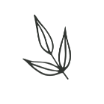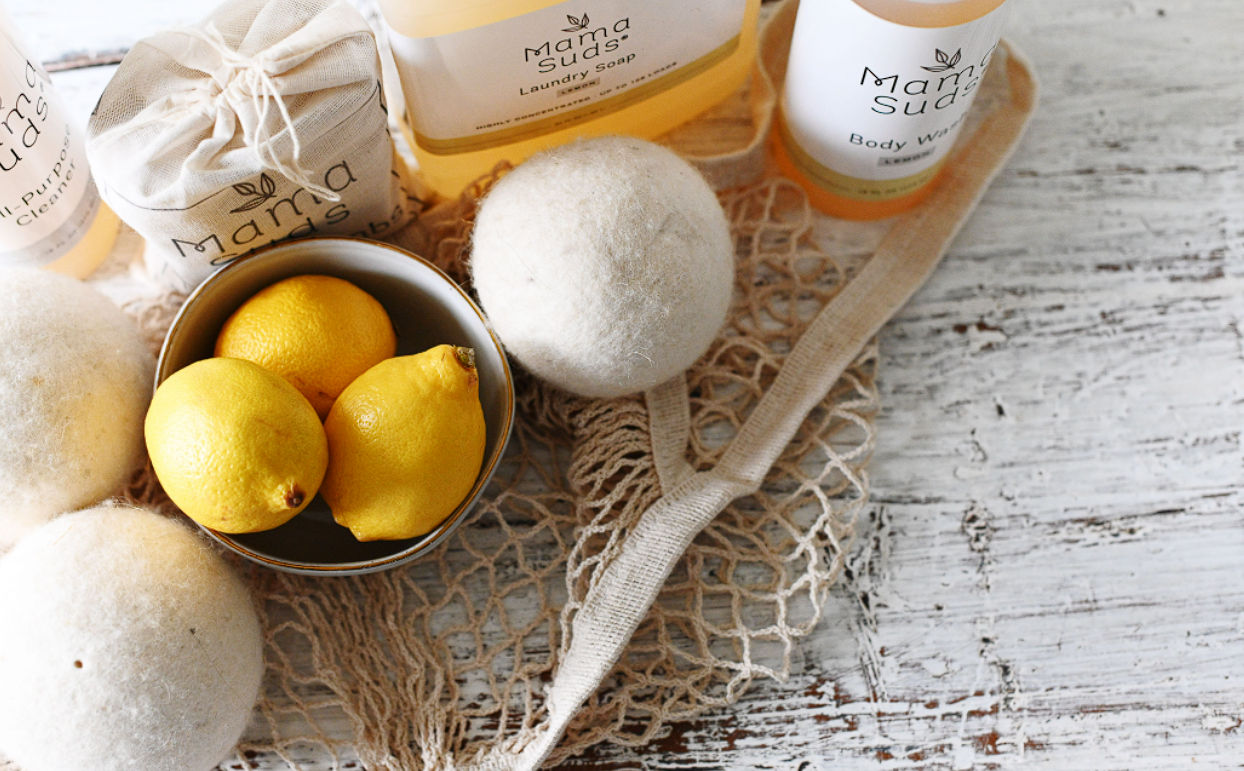
The CleanSuds Blog
Where education and truthful facts are easy to come by.

The Top 3 Ingredients to Avoid in Laundry Detergent
Toxic chemicals may be hiding in your laundry detergent. Find out what you need to know to stay safe and healthy and get your laundry clean.
Doing the Laundry is the Worst. Okay, so maybe a few people like one aspect of laundry. But most hate it. I like putting my laundry into the washer and starting it. But then that's when I wish the Laundry Fairy would finish the job for me! Who can relate?
Unless you live in a nudist colony, your skin is touching fabric 24/7, so what you use to wash your laundry is important to your health. Conventional laundry detergent (and many greenwashed "natural" ones too!) contains many unhealthy ingredients that can severely impact your health. In fact, your laundry room products are some of the most toxic cleaning chemicals in your house!
With so much to sort through on product labels (if your detergent lists the ingredients on the label at all), it can be hard to sort through the good, the bad and the greenwashed. We have some ingredients to steer clear of when you are looking at a safe and healthy detergent.
1. Fragrance
Fragrances in laundry products can lead to skin irritation (which can be the cause of rashes, eczema, and itching). A big problem with fragrance is that companies can list them as one ingredient without listing all the components. Why does this matter? Most fragrance is synthetic and contains both phthalates and petrochemicals (which is bad for the environment) which do not have to be disclosed. These components can cause headaches, asthma attacks, and skin irritations that don't always show up right away. They build up in our system and cause a gradual overload.
“Fragrance is considered to be a trade secret, so brand formulas are proprietary and the individual ingredients are not required to be listed on the label,” explains Tonya Harris, an award-winning environmental toxin expert and the creator of the Slightly Greener Method. “Fragrances in detergent can be made up of dozens of ingredients, of which some may be allergenic [and] toxic to the brain and nervous or respiratory system.”
Bottom line: stick with essential oils (real ones!) or go unscented, and stay clear of the word FRAGRANCE and PARFUM.
2. Ingredients that end in "-ETH"
Ethoxylated ingredients are treated with ethylene oxide (a known carcinogen) when it's processed. A by-product of this process is 1,4-dioxane (another carcinogen) which is absorbable through the skin. 1,4-dioxane won't be listed as an ingredient on your products so it's important to stay away from ingredients that when processed create 1,4-dioxane as a by-product. Companies use ethoxylated ingredients to stabilize their formula so the ingredients won't separate.
Bottom line: steer clear of ingredients that end in "-eth", polysorbates, phenoxyethanol, and PEGs.
3. Sulfates
We have been conditioned in the last 100 years to believe that soap/detergent must foam or lather in order to clean. Sulfates are found in so many everyday products; everything from shampoo to toothpaste, and laundry detergent. They are a skin irritant that doesn't always show up as an immediate reaction.
Bottom line: avoid sodium laurETH sulfate and sodium lauryl sulfate.
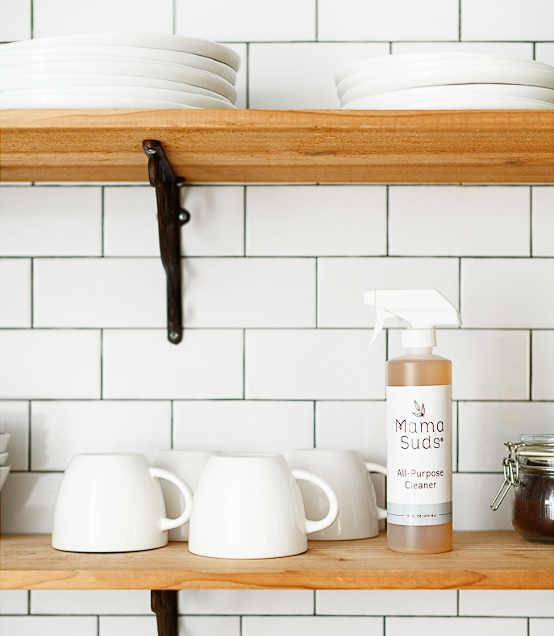
Advantages of MamaSuds All-Purpose Cleaner

Have you ever wondered what makes a cleaner all-purpose? Generally speaking, these products are soft on surfaces and hard on germs. The idea is to offer one product instead of many for cleaning made simple. After all, we know you’ve got a million things to do without stressing a mess.
Next up is what sets us apart from the pack. At MamaSuds, we’re all about transparency! That’s why our list of natural ingredients is anything but secret. Our organic all-purpose cleaner is a completely safe solution that smells like a dream. Keep your kids safe and your counters sparkling with our impressive cleaner.
Our Ingredients
As any mom can tell you, effective cleaning is all about the ingredients. We want the best for our families and know you do, too. That’s why we source pure oils and natural solvents for a family-friendly product. Here’s what you can expect to find in our all-purpose cleaner:
- Water
- MamaSuds original formula castile soap (potassium olivate)*
- Aloe vera gel, including non-GMO citric acid*
- Pure clove bud essential oil
- Pure organic cinnamon leaf essential oil
- Pure lemon essential oil
- Pure eucalyptus radiata essential oil
- Pure rosemary essential oil
*Aloe vera gel juice contains citric acid that may be derived from corn. Do not use if you are allergic to corn.
As you can see, there’s not a lot to it. Who knew perfection could be so simple? Really, we’ve found that using the best ingredients in balanced ratios is the secret to our success. Each ingredient offers its own unique benefits, like in the following essential oils.
Clove
Did you know that clove has anti-inflammatory properties? Besides its amazing scent, the clove plant is commonly used in cosmetics to fight inflammation. For example, one scientific study published in 2021 cited its ability to reduce inflammation by up to 20 percent over 3 hours. While cleaning products aren’t designed specifically for topical use, our all-purpose cleaner boasts several skin-friendly ingredients.
Lemon
Nothing is as clean as a sun-ripened lemon. Besides its fresh scent, lemon essential oil offers secondary skin benefits. For example, did you know the plant’s detoxifying properties are good for oily skin? How about its ability to boost the immune system? That’s right: lemons are as useful to the skin as they are fragrant in the home. Good thing we included lemon essential oil in our all-purpose cleaner for yet another benefit.
Rosemary
Rosemary is another ingredient known for its revitalizing scent. Just like lemon, you’re likely to find it in kitchen cabinets and cosmetics alike. We thought we’d take things to the next level by adding rosemary essential oil to our all-purpose cleaner for its invigorating fragrance. In fact, this multifaceted ingredient is often considered a tonic to refresh and restore the skin.
Cleaning Instructions
Have you ever wondered what all-purpose cleaner is good for? In short, it’s formulated to use on many household surfaces. Every brand and product is different, so your best bet is to read labels carefully. However, most all-purpose cleaners, including ours, are designed to handle routine cleaning on a variety of surfaces.
Stoves
While ovens often require specific cleaners and harsh chemicals, you’re free to use all-purpose cleaners on stovetops themselves. These surfaces are easier to clean based on better access and visibility. To clean, simply spray the surface and wipe it down using a microfiber cloth. Buff dry with a towel for a smooth, shiny finish.
Countertops
If your kitchen has tile or laminate countertops, it’s okay to use an all-purpose cleaner. (Ours is definitely safe, thanks to its natural ingredients!) Spray your surface and wipe it off using a soft, dry cloth. For excess grease or residue, spot clean using stronger or more concentrated cleaning products.
Showers
Has your shower seen better days? Stay up-to-date on weekly cleanings using an all-purpose cleaner. Spray all shower surfaces, including the corners and door, for complete coverage. Rinse off and squeegee as needed. Pro tip: use an all-purpose cleaner for regular cleaning and minimal residue.
Floors
Did you know you can use all-purpose cleaner to mop floors? Thanks to its castile soap base, this cleaner can be easily diluted for use on wood, tile, or linoleum floors. Start by running warm water and adding ½ cup of all-purpose cleaner. Mop your floors in the cleaning solution and let dry. Pro tip: add plenty of water. Floors aren’t rinsed after mopping, so try to avoid unnecessary residue.
Final Thoughts
All-purpose cleaner is true to its name with a million different uses. Use it in your kitchen, bathroom, or living room floor for completely natural cleaning. Now that you know what it does, what it contains, and how to use it, it’s time to try it on for size.
Are you curious about what we have to offer? If so, check out our online store for everything you need to know on current product availability. We’re thrilled to help other mamas like you get their houses clean while kicking chemicals to the curb. Thanks so much for stopping by, and we hope to see you again soon.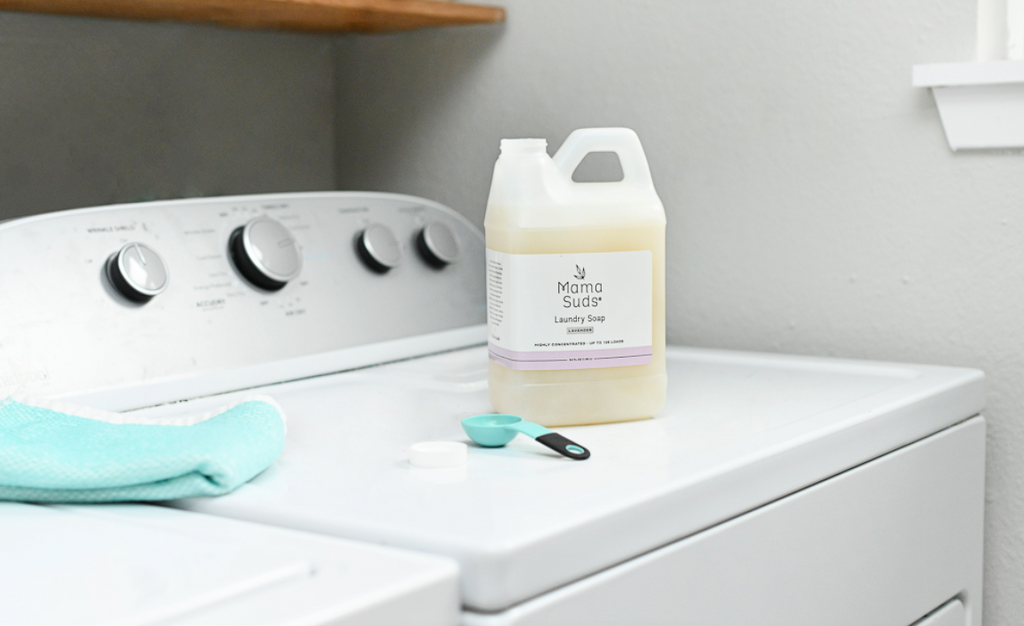
Benefits of Using Castile Soap in Your Laundry Soap
• Its gentle on skin properties combined with powerful dirt-grabbing abilities make it an ideal clothes cleaner.
• It contains no synthetic compounds, chemicals, or other unwanted substances into your laundry.
• It is also useful as a pre-treatment to tackle stains with just a few drops of the liquid version rubbed directly on them.
• Additionally, it is eco-friendly and safe for clothes and skin.
• Mama Suds provides Castile soap household cleaning products including a mixture specially designed for high efficiency machines without any chemical additives.
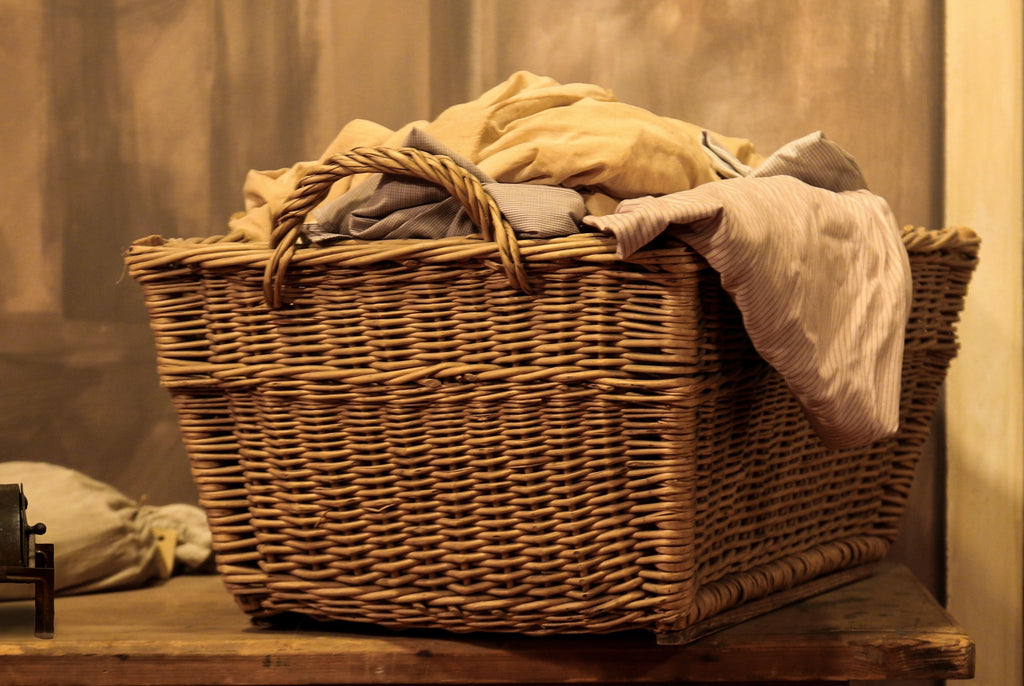
How to Strip your Laundry
• Workout clothes, bedding and towels are likely to be the biggest accumulators of residue.
• To deep clean clothes, a stripping recipe consisting of Borax, Washing Soda, Oxygen Powder and Soap should be used.
• To strip laundry, separate colors from whites; submerge items in hot water with the cleaning ingredients; soak for several hours; drain and transfer to washing machine and wash on hot with extra rinse cycle.
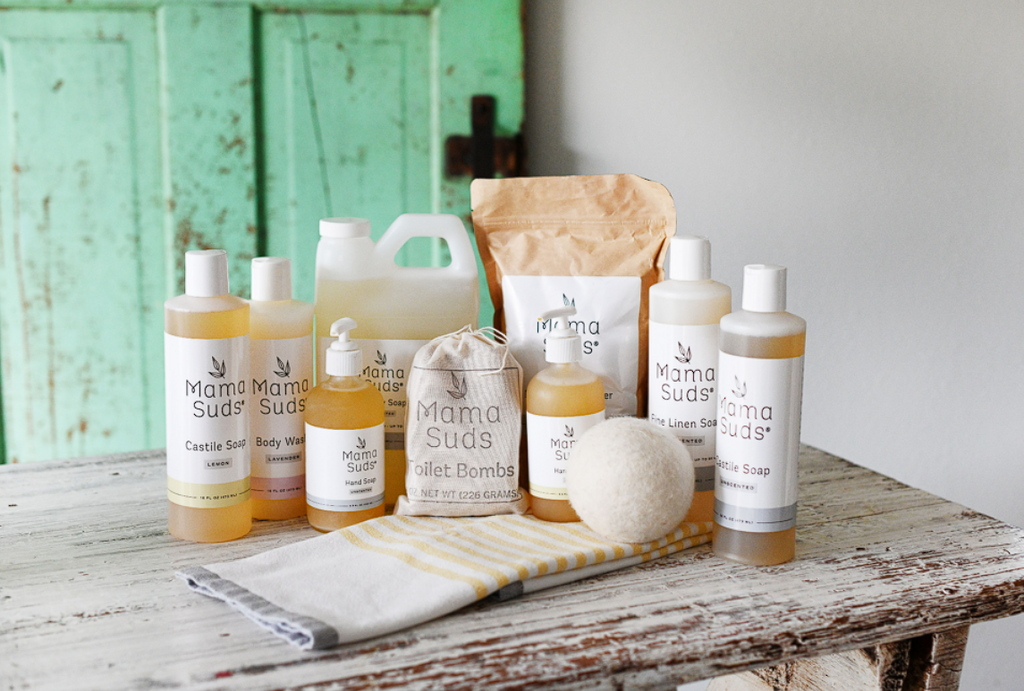
Castile Soap as a Miracle Cleaner
• It has a pH balance of 8.9, which is effective for removing grease and other substances without being harsh or acidic.
• Castile soap can be used for face and body wash, all-purpose cleaners, dishwashing detergent, laundry detergent, and vegetable cleaner.
• Mama Suds offers quality Castile soap products with all-natural ingredients and no irritants.
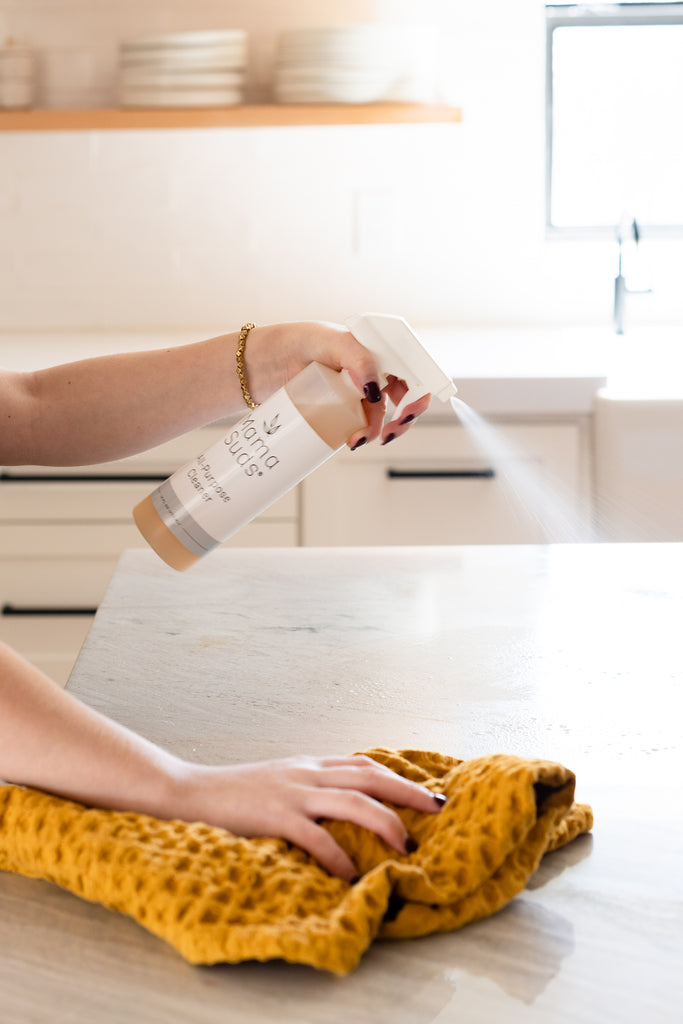
Do Natural Cleaners Really Work?
• Common natural cleaner ingredients include vinegar, hydrogen peroxide, baking soda, castile soap, citric acid, and essential oils.
• Castile soap is an example of an extremely effective natural ingredient that is as effective as its chemical counterparts.
• Alcohol and hydrogen peroxide are examples of natural disinfectants that are effective against bacteria and viruses, including COVID-19.
• To find the best all-purpose natural cleaner, look for one with proven dirt eliminators like castile soap, plus citric acid or hydrogen peroxide for disinfection.
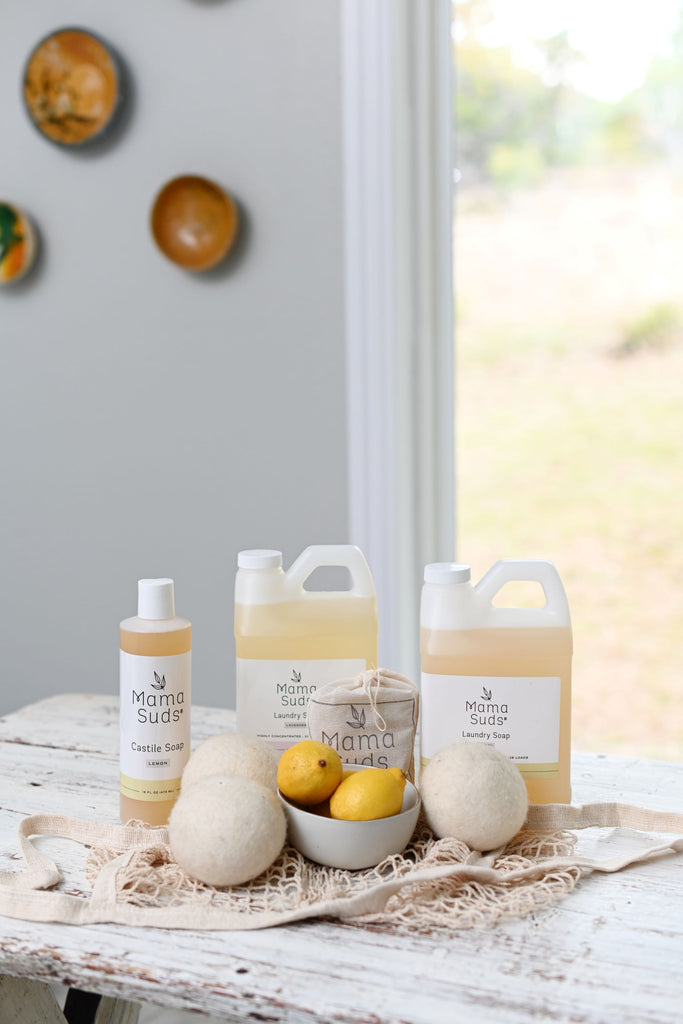
Laundry Detergents for MCS (Multiple Chemical Sensitivity)
• Finding the Right Detergent: Individuals with MCS should look for "green" brands and check labels carefully when looking for an appropriate laundry detergent.
• Potential Issues with Standard Detergent: Reactions to "regular" laundry detergents can vary and may irritate skin or create other unpleasant results.
• Castile Soap Safety: Castile soap is made of olive oil and lye and is just as safe to use as standard bar or liquid soaps.
• Final Thoughts: Home testing different products while considering fragrance implications can help individuals find the right laundry detergent for their needs.
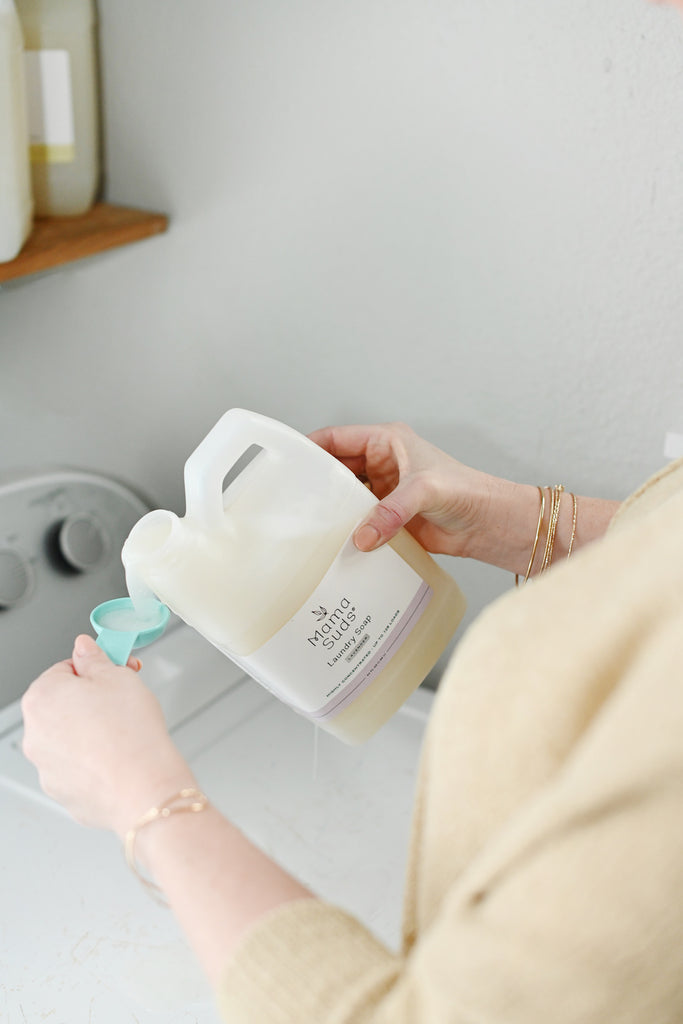
Using All-Natural Laundry Soap in HE Washers
• Products used in HE washers should have the HE logo to certify use in these washing machines.
• Quality all-natural laundry detergents do not ruin HE washers, however it is important to be aware of ingredients such as excess fatty acids which can cause build up and residue.
• All-natural laundry detergents will save you from being exposed to chemicals, but making your own supplies careful measuring and ratio considerations.
• It is suggested to opt for a professionally made all-natural laundry detergent that has been tested for compatibility with HE washers or use one that has a clean soap that's not superfatted.

Should You Use Hot Water When Doing Laundry?
• Hot and warm water can be more effective than cold water for certain fabrics and germs. Hot water is better for cloth diapers, baby clothes, and knits.
• Cold water is beneficial because it doesn't require additional energy to heat up. It's also effective at removing many stains, including grass, blood, sweat, and makeup stains.
• However, hot water has the advantage of being better suited to oily or greasy stains.
• Cold water is less likely to shrink or fade clothing; however, hot water can worsen some stains by causing them to seep deeper into the fabric.
• The choice between hot or cold should depend on what you're washing and why you're washing it.

